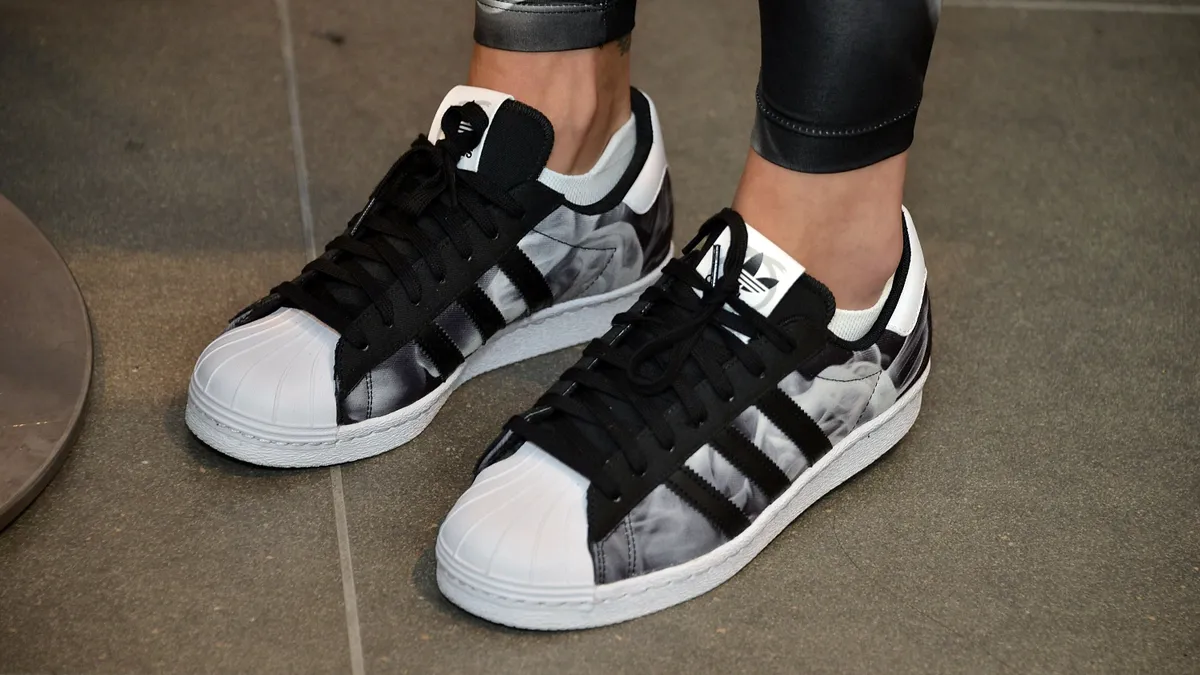Dive Brief:
- The European Union Intellectual Property Office has rejected Adidas’ opposition to Thom Browne’s use of an adjacent stripe graphic. Adidas had argued that Thom Browne’s designs were “visually confusingly similar” to its own, according to documents filed last week.
- Adidas was ordered to pay Thom Browne’s legal fees, which are fixed at 300 euros, or about $325.30 at current exchange rates, according to the filing.
- The dispute is the latest in a series of legal challenges between the German sportswear company and Zegna Group-owned Thom Browne over stripe designs.
Dive Insight:
Thom Browne and Adidas have disputed stripe designs in courts both in the U.S. and the U.K. since 2021. In the U.S. case, a jury found Thom Browne not liable for Adidas’ claims that the Thom Browne designs were “confusingly similar to Adidas’ products.” Adidas requested a new trial for that case in October 2023, which Thom Browne opposed.
Adidas has since filed more documents in support of its request for a new trial in the U.S., and a decision has yet to be made.
Thom Browne’s design in question in the recent EUIPO filing, which Adidas contested, included five adjacent stripes, three of which have the same dimensions and length with two identical small white stripes.
“The stripes composing the earlier [Adidas] marks and the [Thom Browne] contested sign are not particularly inherently distinctive per se, since they are basic geometric shapes,” the filing states. “Visually, the signs coincide in one characteristic: they are all composed of stripes.”
The court further explained that the number, arrangement and sequence of the stripes differ among the designs.
The territory where the opposition focuses is in the European Union, including Germany and Benelux.
While the Opposition Division of the EUIPO said that the three-stripe designs “enjoy a high degree of recognition among the relevant public” of the region, the evidence doesn’t establish that the marks “have a reputation for all the goods for which reputation has been claimed.”
Adidas claimed that its marks have a high degree of recognition to the public with all the categories of goods it is registered in, particularly sportswear and leisurewear, headgear, footwear and sporting equipment. However the findings in the documents didn’t apply to goods such as wallets and bags, per the filing.
“The marks in question, when viewed as a whole, convey sufficient distance in their overall impressions,” the document states. “As a result, contrary to the opponent’s arguments, consumers are unlikely to confuse the marks, including believing that they originate from the same undertaking or from economically related undertakings. Therefore, contrary to the opponent’s arguments, the differences between the signs are sufficient to prevent a likelihood of confusion.”
Adidas’ opposition had been ongoing since 2018, against all goods in the EU, per the document. Part of the complaint was withdrawn in 2021.
Representatives for both Adidas and Thom Browne declined to comment.











